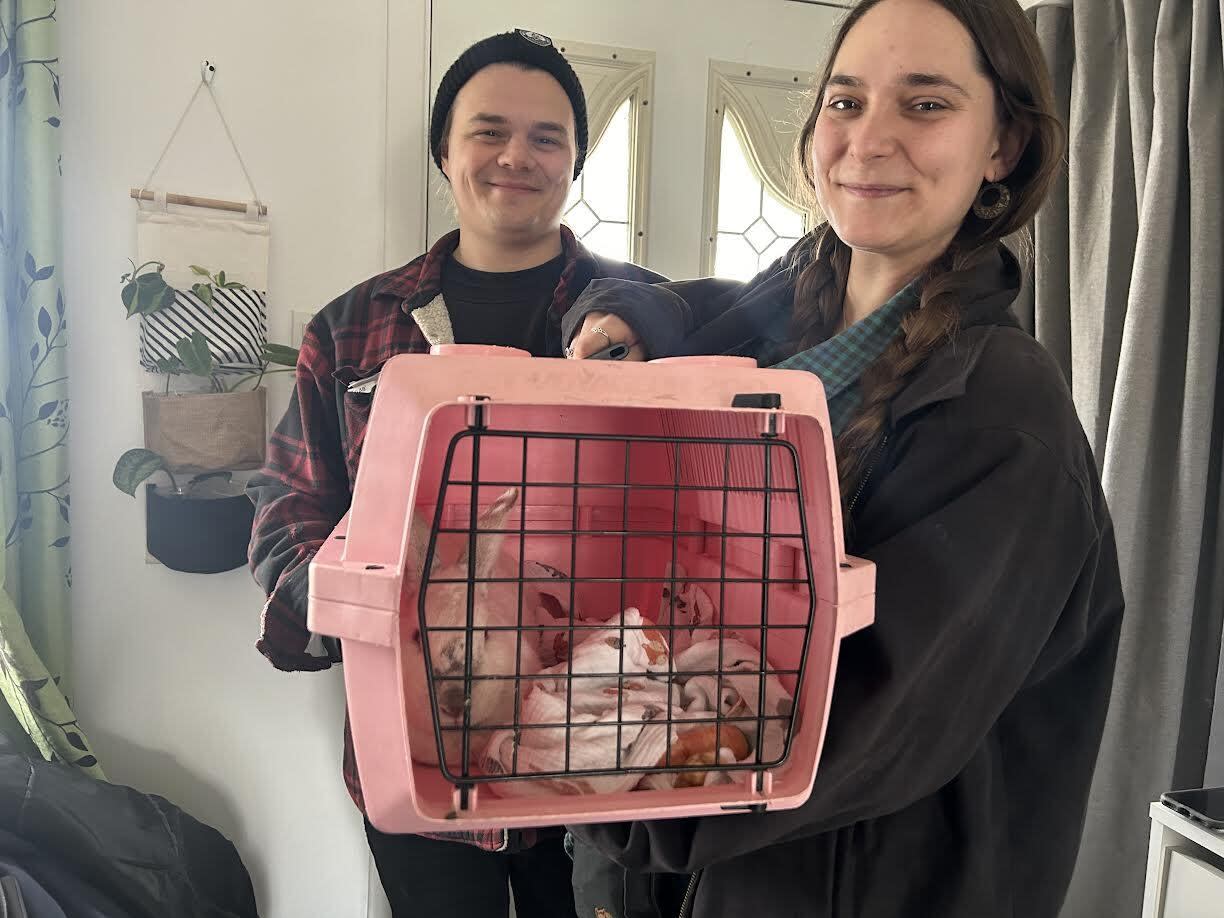Montreal rabbit rescue group saves abandoned bunnies from streets

Erika Parson-Paulin walks up to the door holding a pink portable crate. The moment, she says, is bittersweet, and she sheds a few tears. Her pet rabbit has found a new place to call home: a foster home for rabbits just like it.
About a year ago, Parson-Paulin discovered her furry friend near her home in Sainte-Julienne, about 70 kilometres north of Montreal, and she has taken care of it ever since.
"I'm very sad because we are used to each other. I'm used to giving her food every morning, every night. I speak with her. She comes near me. She takes carrots from my hand," Parson-Paulin said.
The foster home is one of three belonging to Sauvetage Lapins Errants, a group that rescues domesticated pet rabbits in the greater Montreal area.
The group's co-founder, Kristina Tellier, finds space in a quarantine cage for the latest addition to the household along with a leafy green snack.

Sauvetage Lapins Errants co-founder Kristina Tellier says the group has so far saved 350 rabbits, but many more are dying. (Kwabena Oduro/CBC)
After 10 days of quarantine to protect the other rabbits from disease, the rabbit will be slowly integrated into the foster home and meet its new housemates.
Tellier says the group has a long list of rabbits that need homes. It wants people thinking about getting a pet rabbit to learn about the animals and how to take care of them before making a decision.
"Even though we've rescued 350 rabbits, about triple [that number] are not being rescued. They're dying outside," she said.

'They're repopulating in areas where wild rabbits live and they're changing the ecosystem,' says Tellier. (Kwabena Oduro/CBC)
Around Easter, many buy rabbits as gifts but then abandon them later in the year. Fending for themselves, the abandoned domestic rabbits are impacting their new environments and getting run over by cars.
"They're repopulating in areas where wild rabbits live and they're changing the ecosystem," she said, adding that they might create colonies in the city.
"It's a scary life for them. They don't know how to fend for themselves," she says, adding that domesticated rabbits don't know how to build dens in the winter or forage for non-toxic food.
"It's really a huge problem, and it exists because people don't do their research beforehand. They don't know what it entails to have a rabbit."
Tellier also says often people assume rabbits are like other familiar house pets, but that isn't the case.
"Maybe the children don't know how to care for them, so they might be poking at them, trying to pick them up when they don't like [it]," she said, adding that rabbits, unlike some other pets, become afraid when they are held above the ground.
For her part this Easter weekend, Parson-Paulin says she knows she can rest easy knowing her rabbit is in good hands, where there's plenty of food to eat and it's a safe distance from predators.


